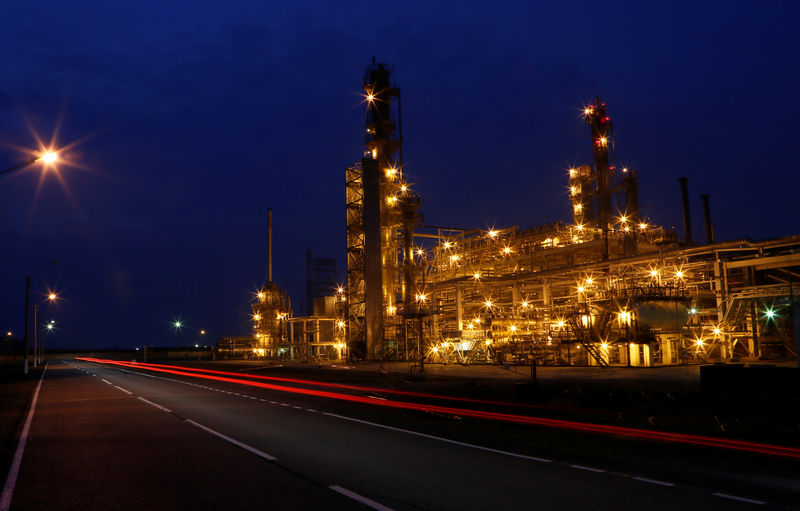By Olesya Astakhova and Maxim Nazarov
MOSCOW (Reuters) - Russia's Rosneft is postponing an upgrade of hydrocracking units at five of its refineries, meaning the company will continue paying higher export taxes on the heavy products they produce, three sources told Reuters on Thursday.
Russia embarked on a multibillion modernization of its biggest refineries in 2011 following a fuel shortage crisis. It also changed its tax system to favor production of cleaner and higher-quality fuel.
The sources did not say why Rosneft was pushing back the schedule. Rosneft declined to comment.
Rosneft, the world's top listed oil company by output, runs a total of 13 refineries in Russia with refining capacity of over 100 million tonnes a year - or around 35 percent of the country's total.
Rosneft was aiming to build hydrocracking units at a number of its refineries, including Tuapse, Novokuibyshevsky, Komsomolsky, Achinsky and Ufaneftekhim which would allow the company to produce more diesel - a high-end oil product.
According to the Reuters data, Rosneft had planned to launch the hydrocracking units at the five refineries in 2019-2020, allowing it to produce around 6 million tonnes of diesel a year, which enjoys a higher price and lower export duty.
One of the three sources, an industry source, confirmed the previous schedule.
This source, another industry source and a trading source familiar with Rosneft plans, said the company has pushed back completion of hydrocracking units at Tuapse, Novokuibyshevsky and Komsomolsky refineries to the third quarter of 2020, while the start of production is expected in the first half of 2021.
At the Achinsky refinery the schedule for finishing the construction was pushed back to the end of 2021, with the launch in early 2022. For Ufaneftekhim, the hydrocracking unit is expected to be operational in 2020, according to the sources.
MISSED PROFIT
Russia, one of the world's top oil producers and exporters, has been pushing hard over the last couple of years to produce more high-end products both in the oil products and petrochemical industries.
The taxation system was also adjusted to support exports of higher margin products and cutting sales of basic raw materials. For example, export duty for diesel is a third of the level for oil and heavy products.
Hydrocracking units refine vacuum gas oil, a heavy oil product with a price on a par with Urals, Russia's top export blend.
The price of Urals currently averages $470 per tonne, while ultra-low sulphur diesel (ULSD) trades at around $630 per tonne.
Initially, Rosneft planned to launch the units in 2017, which, according to Reuters calculations, would have allowed it to save around $1.1 billion in export duties only, before accounting for the price gap between the products.
